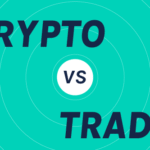The Role of Smart Contracts in Modern Blockchain Ecosystems

Introduction
Smart contracts have become a cornerstone of blockchain innovation, revolutionizing how digital agreements are created, executed, and enforced. These self-executing contracts are designed to run on blockchain platforms, eliminating the need for intermediaries and increasing efficiency, security, and trust. As decentralized applications (dApps) expand across industries, smart contracts are enabling a new wave of automation in finance, supply chains, healthcare, and more.
What Are Smart Contracts?
A smart contract is a piece of computer code stored on a blockchain that automatically executes predefined actions when specific conditions are met. Unlike traditional contracts that require manual intervention or third-party enforcement, smart contracts operate autonomously and transparently. Once deployed, they are immutable and tamper-proof, ensuring that the agreed-upon terms are honored by all parties involved.
These contracts reduce the risk of manipulation, streamline processes, and cut down on operational costs—making them ideal for use cases where trust, transparency, and automation are crucial.
How Smart Contracts Work
Smart contracts function through “if/then” logic embedded in their code. When certain inputs or conditions are met (e.g., a payment is received, or a delivery is confirmed), the contract automatically executes the agreed-upon action (e.g., releasing funds or issuing a receipt).
Each contract is deployed to the blockchain as a decentralized application (dApp), interacting with users or other smart contracts. Because they run on blockchain networks, all transactions involving smart contracts are recorded on a public ledger, offering complete transparency and auditability.
Key Features of Smart Contracts:
- Autonomy: No third parties are needed once the contract is live.
- Trust: Data and outcomes are verifiable and irreversible.
- Speed and Accuracy: Automated execution eliminates delays and errors.
- Cost-Efficiency: Fewer intermediaries reduce transactional costs.
Leading Platforms Supporting Smart Contracts
Ethereum
Ethereum is the pioneer and most widely used blockchain for smart contracts. It introduced the Ethereum Virtual Machine (EVM), which enables developers to write and deploy contracts using programming languages like Solidity. Ethereum’s vast ecosystem includes DeFi protocols, NFT platforms, DAOs, and more, all powered by smart contracts.
Despite scalability and gas fee concerns, Ethereum remains the most mature and secure environment for smart contract development.
Solana
Solana is a high-performance blockchain known for its speed and low transaction costs. It supports smart contracts written in Rust and C-based languages and is designed for scalable, real-time applications like gaming, decentralized exchanges, and Web3 projects.
With its fast consensus mechanism (Proof of History), Solana offers an attractive alternative for developers seeking performance without sacrificing decentralization.
Other Platforms
- BNB Smart Chain (BSC): Popular for low fees and Ethereum compatibility.
- Cardano: Focuses on peer-reviewed development and formal verification.
- Polkadot: Enables cross-chain smart contract deployment via parachains.
- Avalanche: Known for fast finality and customizable subnets.
Use Cases of Smart Contracts
Smart contracts are powering a wide range of applications across industries:
- Decentralized Finance (DeFi): Lending, borrowing, staking, and trading without intermediaries.
- Supply Chain: Automated tracking and payments upon product delivery.
- Real Estate: Tokenized property sales with transparent ownership transfers.
- Insurance: Instant claims processing based on verifiable triggers.
- Voting Systems: Secure and transparent digital voting mechanisms.
Conclusion
Smart contracts are redefining the future of digital interactions by embedding trust, automation, and transparency into blockchain ecosystems. As platforms like Ethereum, Solana, and others continue to evolve, smart contracts will play an increasingly vital role in enabling decentralized applications and transforming industries. Their ability to self-execute with precision makes them an essential building block in the broader Web3 revolution.









